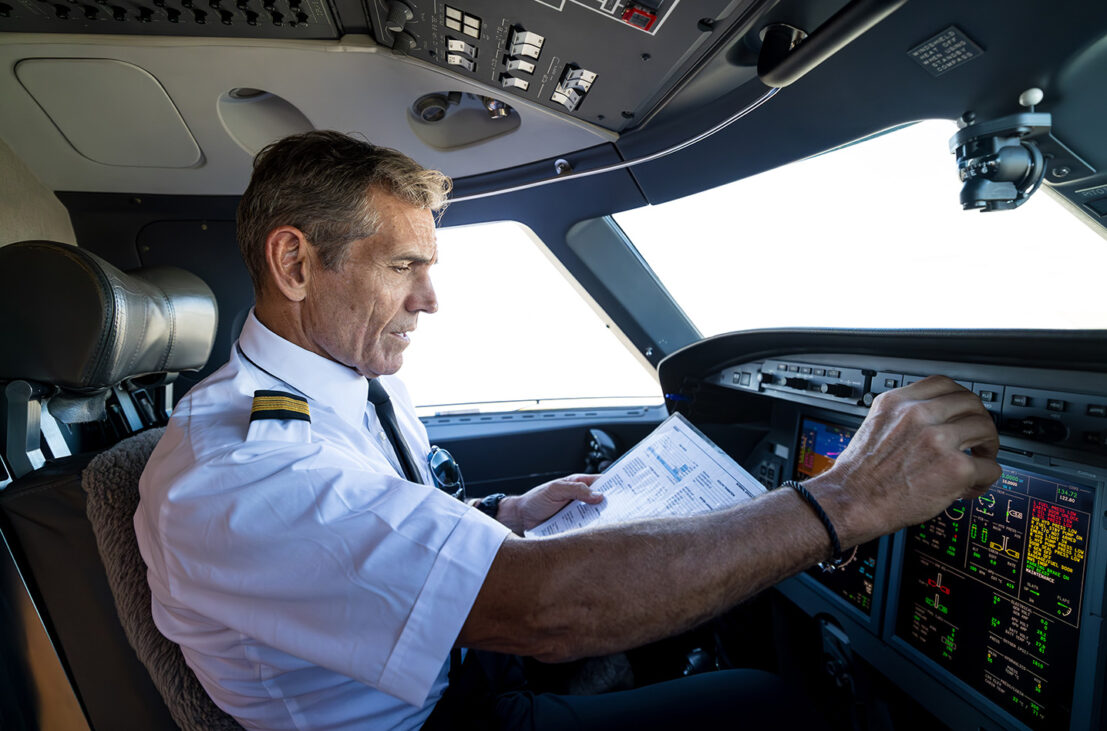
Dec. 7, 2023
Pilots – and others working in the aviation industry – often don’t report mental health issues, due to a fear of losing their livelihoods. This week, government and industry leaders, including NBAA, took part in an NTSB summit to discuss how to put an end to this practice and better provide help for those in need.
Pilots are required to disclose to the FAA any physical and psychological conditions, as well as any medications they may be taking. Many pilots and air traffic controllers, and others, have expressed concern about revealing mental health information for fear of it adversely affecting their careers.
Summit participants heard first-person accounts from those who have either experienced mental health issues themselves or had family members who did so – and the effect it had on them personally and professionally.
NTSB Chair Jennifer Homendy said she’d like to see an amnesty provision in new regulations, allowing pilots to come forward and be honest about their mental health struggles. Also, she’d like to see the FAA cut down on the amount of time it takes to process medical certifications, calling it a “very cumbersome, federal bureaucratic nightmare.”
“I hear from so many pilots and others that they are waiting for, sometimes, years, and meanwhile, they are spending upwards of $10,000 for testing, more advanced psychological testing, which, again, is often not covered by insurance,” she said.
The summit came on the heels of the FAA’s announcement that it has officially established the Mental Health and Aviation Medical Clearances Rulemaking Committee (ARC), which will provide recommendations to the agency on ways to identify and break down any remaining barriers that discourage pilots from reporting and seeking care for mental health issues.
The ARC will also consider the same issues for FAA air traffic controllers, and will submit its recommendations to the agency by the end of March 2024.
Future Aviation Professionals
Many panelists commented that up-and-coming industry professionals view mental health differently than those of older generations – they are more willing to talk about and acknowledge issues.
“Mental health issues are not new, but they are being addressed differently,” said Andrew LeBovidge, executive vice president, National Air Traffic Controllers Association. “We have the opportunity to seize this moment in time.”
Professor Harley Waters, student wellness coordinator and professional pilot faculty member at Middle Tennessee State University, noted that her current students went through high school during the pandemic, which had a big impact on how they view mental health.
“They want the changes and they are willing to make the changes,” she said. “The future aviation professionals we have, they are a force to be reckoned with, they see the change and they yearn for it.”
Commercial Versus General Aviation
Many panelists from the commercial side of aviation noted that their companies and associations had strong peer-to-peer support programs in place, which were extremely helpful to employees working through difficult issues.
But, there is no “one-size-fit-all” approach, most agreed.
Bruce Landsberg, past vice chair of the NTSB, noted that resources available to those on the commercial side are likely to be greater than those working in general aviation. All segments of the industry must work together on this issue, he stressed.
“This is not an easy task, it’s going to take time and money,” he added.
NBAA Director of Safety and Flight Operations Mark Larsen noted that there are more than 14,000 business aviation operators in the U.S., with an average of three pilots per company. In business aviation, peer-to-peer support may look different than it does for large airlines. NBAA is currently developing a program tailored to the business aviation community that would include professional mental health support as needed.
“We need to be able to bring in professionals when necessary,” he said. “There’s absolutely a place for peer-to-peer support in evolving the culture, and we need [FAA policy support for] access to care and access to those who can help.”
Where Do We Go From Here?
At the end of the day-long summit, participants said having the tough discussions was a good first step, but the discussions need to be followed by concrete actions.
“I believe we’re on the right track and I’m very hopeful there can be a meeting of the minds without too much over analysis,” said Keith Silva, a pilot for Republic Airways and a licensed professional counselor. “This is a problem that has to be addressed.”
Many asked that the group continue to meet to ensure progress was being made, and changes were taking place in a collaborative, innovative manner.
“We need to make sure we make it easier to get appropriate mental health care when necessary and ensure the wide breadth of resources are available,” said Larsen.


 International Business Aviation Council Ltd.
International Business Aviation Council Ltd.